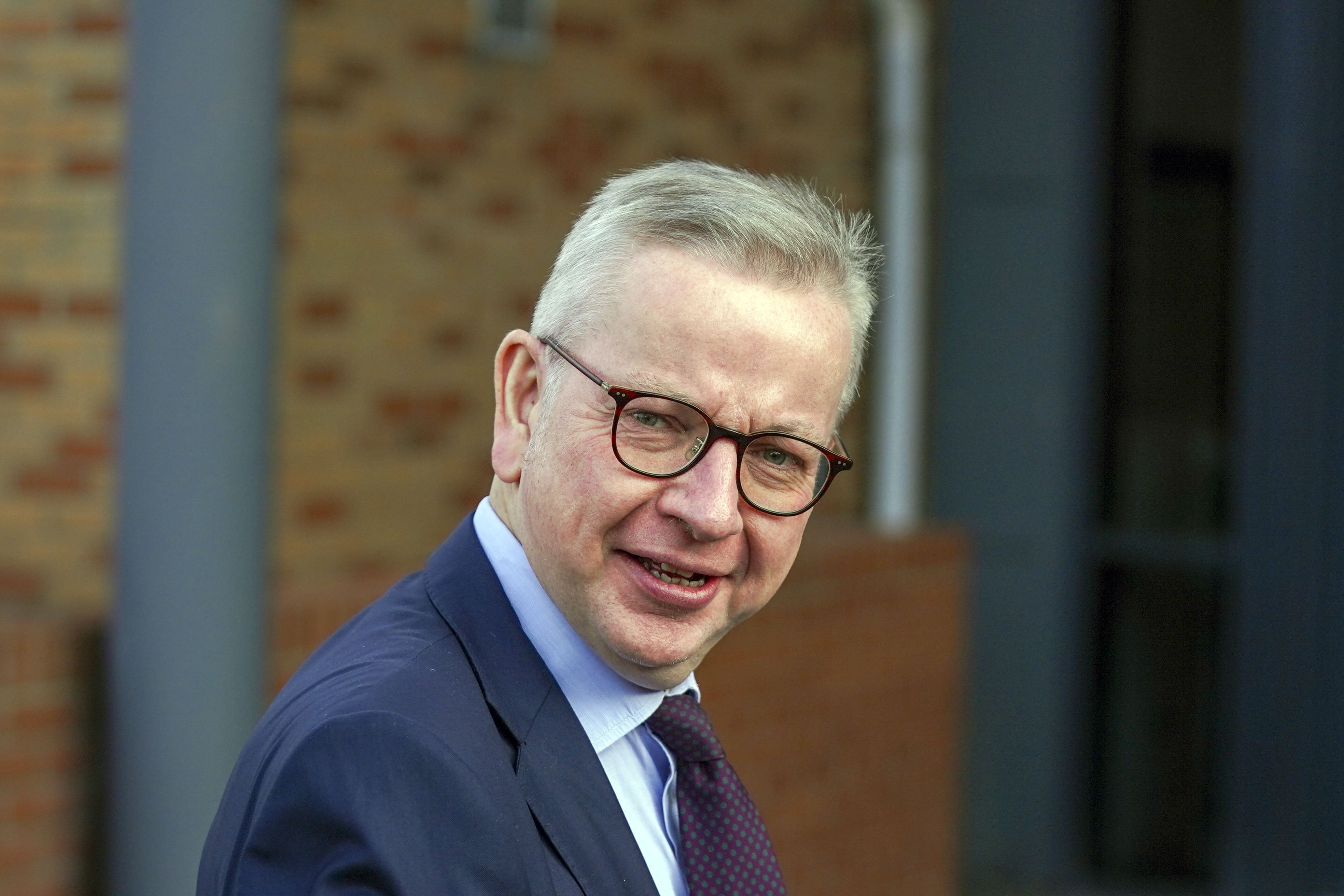Michael Gove defends funding of ‘rehashed’ levelling-up promises
Labour’s Lisa Nandy said some of the announcements were originally proposed by Gordon Brown.

Your support helps us to tell the story
From reproductive rights to climate change to Big Tech, The Independent is on the ground when the story is developing. Whether it's investigating the financials of Elon Musk's pro-Trump PAC or producing our latest documentary, 'The A Word', which shines a light on the American women fighting for reproductive rights, we know how important it is to parse out the facts from the messaging.
At such a critical moment in US history, we need reporters on the ground. Your donation allows us to keep sending journalists to speak to both sides of the story.
The Independent is trusted by Americans across the entire political spectrum. And unlike many other quality news outlets, we choose not to lock Americans out of our reporting and analysis with paywalls. We believe quality journalism should be available to everyone, paid for by those who can afford it.
Your support makes all the difference.Michael Gove defended the funding of landmark levelling up promises launched on Wednesday as he insisted the Government will “change the economic model of this country”.
The Levelling Up Secretary said there are “12 big missions” the Government wants to achieve by 2030 in order to improve the lives of those outside London and the South East.
But his Labour counterpart, Lisa Nandy, criticised the Levelling Up White Paper as being a “series of rehashed announcements, some of which are so old they were actually originally made by Gordon Brown when he was the Labour prime minister in 2008”.
The White Paper will set out a series of wide-ranging national “missions” – from improving public transport to ensuring access to 5G broadband – to be enshrined in law.
But Mr Gove was asked how much of the money committed to the plans is fresh funding.
He told BBC Radio 4’s Today programme: “What we’re doing is we’re taking numbers from a Treasury spreadsheet and transforming it into real change in people’s lives.”
Speaking on LBC, he said: “There’s a difference between Rishi (Sunak) announcing that he’s going to give me money and me spending it.
“But if you are in Wolverhampton or Sheffield, and you’re getting new cash to invest in your city centre, that is new money.”
Mr Gove suggested he has asked the Chancellor for more cash to play with for the measures, telling Today: “Well, in this life we never get everything we want, but, in the words of Mick Jagger, you might not always get what you want but sometimes you get what you need.”
Treasury Chief Secretary Simon Clarke later said the Government had committed a fresh £150 billion across all departments.
Speaking on the BBC’s World At One he conceded this was not all earmarked for levelling up, but insisted “it underpins our wider work on all of these areas”.
“That money is heavily targeted at those communities that need it the most,” he said.
However, leading health expert Professor Michael Marmot suggested the Government had not invested enough.
“The £5-6 billion currently allocated to levelling up is tiny given the historic scale of the problem,” he said.
“Mr Gove’s reliance that the money he is putting in will ‘trickle down’ to those who will benefit is, simply, inappropriate by an order of magnitude.”
Labour leader Sir Keir Starmer added: “Today’s set of repackaged, rehashed and recycled ‘announcements’ is yet another sign the Conservatives are out of ideas and out of energy.
“A Labour government would be focused on enabling communities across the UK to thrive, providing security and prosperity for all.”
The promise to “level up” forgotten and deprived communities was a key theme of Prime Minister Boris Johnson’s 2019 general election campaign which saw the Tories make huge gains in Labour’s previously impregnable “red wall” heartlands.
In all, the White Paper includes 12 national “missions” to be achieved by 2030 to be enshrined in a flagship Levelling Up and Regeneration Bill.
Mr Gove, who will deliver a statement to the Commons later, said mistakes had been made by “parties of both colours” and that “one of the things in the past is there have been sincere and committed attempts by politicians left and right to deal with this”.
“But nothing as comprehensive or as long term as the plan that we’re setting out today,” he said.
However, Labour MP Yvette Cooper said that, despite promises, those in the North of England have yet to see any changes.
The shadow home secretary told BBC Radio 4’s Today programme: “There’s an awful lot of talk about levelling up, but it’s not what people are actually seeing on the ground.
“We want to see support for our towns, support for our transport systems.”
She said that investment in Castleford in her constituency announced in the Government’s plan “doesn’t outweigh the huge scale of cuts” in the area over the last decade, adding that cuts to buses and trains have recently been announced.
However, Tracy Brabin, Labour Mayor of West Yorkshire, said there is “lots to be pleased about” in the plan for the UK, although “the devil is going to be in the detail”.
She told Today: “It’s like a love letter to levelling up, isn’t it?
“Lots of ambition, lots of hope, but unless you actually have the money and the resources, you are going to be struggling.”
The Northern Research Group of Conservative MPs welcomed the Government’s “ambitions”.
A spokesman said: “We are happy that not only has the Government set out a bold timescale in which to deliver levelling up by 2030, but that the Government has also embraced many of the ideas set out by the Northern Research Group, including attracting foreign direct investment devolution and driving up educational skills and standards.
“This demonstrates that the best ideas to drive the future economy of the North are derived from the North.”